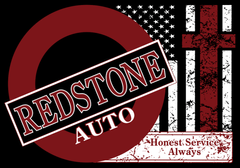We Are a Proud Kumho Tire Dealer
In New England it is important to have a great set of tires to conquer the elements. Over time your tire's performance fades and in many cases the damage is overlooked. That is why it is important to look for the signs that your tires are in need of being replaced.
One clear indicator is the loss of tire pressure. There are several reasons tires lose pressure. Tears in the tire wall or punctures are obvious causes of "slow leaks," but ambient temperature can also cause changes in tire pressure as well. For example, if you live in North Conway where a warm fall day may be about 68 degrees and a warm winter day can be about 33 degrees, you can expect a 4.4 psi pressure drop over the seasons. Why? It's typical for tires to lose pressure at approximately 1 psi for every 8-degree drop in temperature. On top of that, tires regularly lose 1 psi per month as well. In most cars, trucks, and SUVs, the recommended tire pressures are printed on a label in the glove box, on the driver's manual, or on a sticker adhered to the doorframe. Keep a gauge handy and use it regularly. Doing so will not only keep you and your occupants safer, but will also improve your fuel economy.
It's also important to have your tires rotated and inflated to the proper pressure about once every 6,000 miles unless the manufacturer of your vehicle suggests otherwise. Uneven wear on tires can also lead to poor performance.
Some new vehicles now have warning systems to alert drivers of tire pressure loss as a part of their active safety packages. For example, Isuzu's Ascender SUV known for its upgraded safety features has a Tire Pressure Monitoring System that instantly warns the driver of a significant pressure loss. Isuzu's pickup truck line employs the same technology.
Another cause of tire failure is overloading a tire. This happens often with owners of pickup trucks and SUVs. Just because your vehicle can contain a heavy load doesn't mean your tires can support the same amount of weight. Be sure to check maximum load weights and speeds before attempting to haul or tow a heavy load.
Be sure to also use the proper tire for the conditions you're driving in. While it may seem more appropriate to use snow tires on dry roads than regular tires in heavy snow and ice conditions, it's not. Dry roads cause escalated wear of snow tires and reducing traction. It's best to use the proper tires in the proper environments and when the season changes, change your tires as well. "All-season" tires may seem like the most convenient answer, but keep in mind that while they may be adequate in all weather conditions, the nature of their design to do so, keeps them from performing excellently in one specific condition. And because they are not perfectly adapted to any specific weather condition, they may wear more quickly than specialized seasonal tires would when used in the conditions they were designed to function the best.
Let the professionals at Redstone Auto help you pick out the best tire for your vehicle and driving style. Call us today to set up an appointment.

